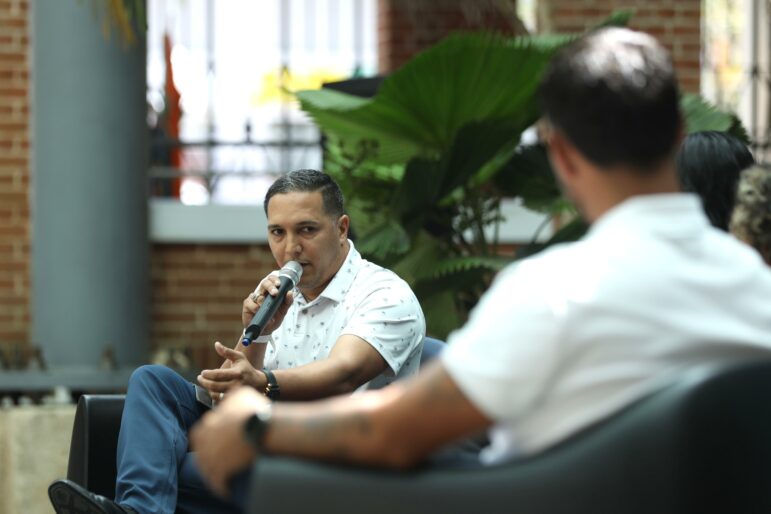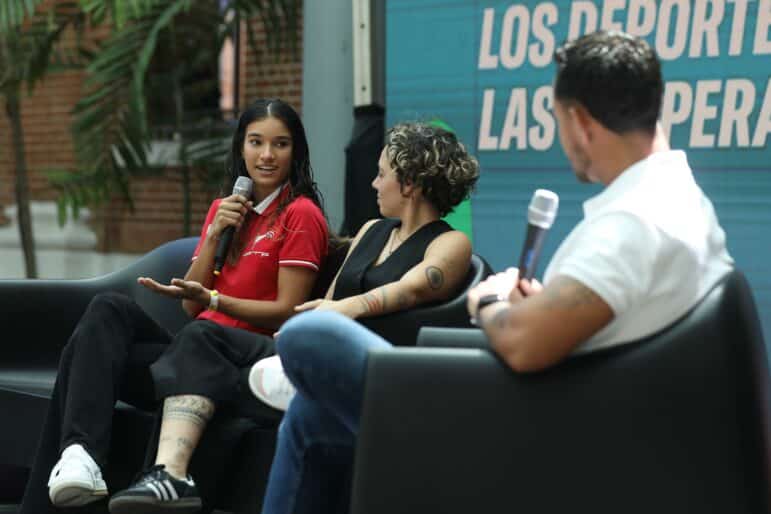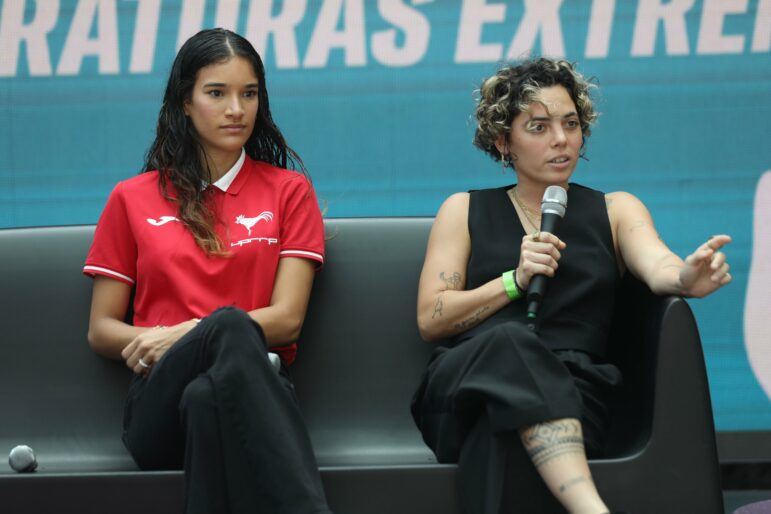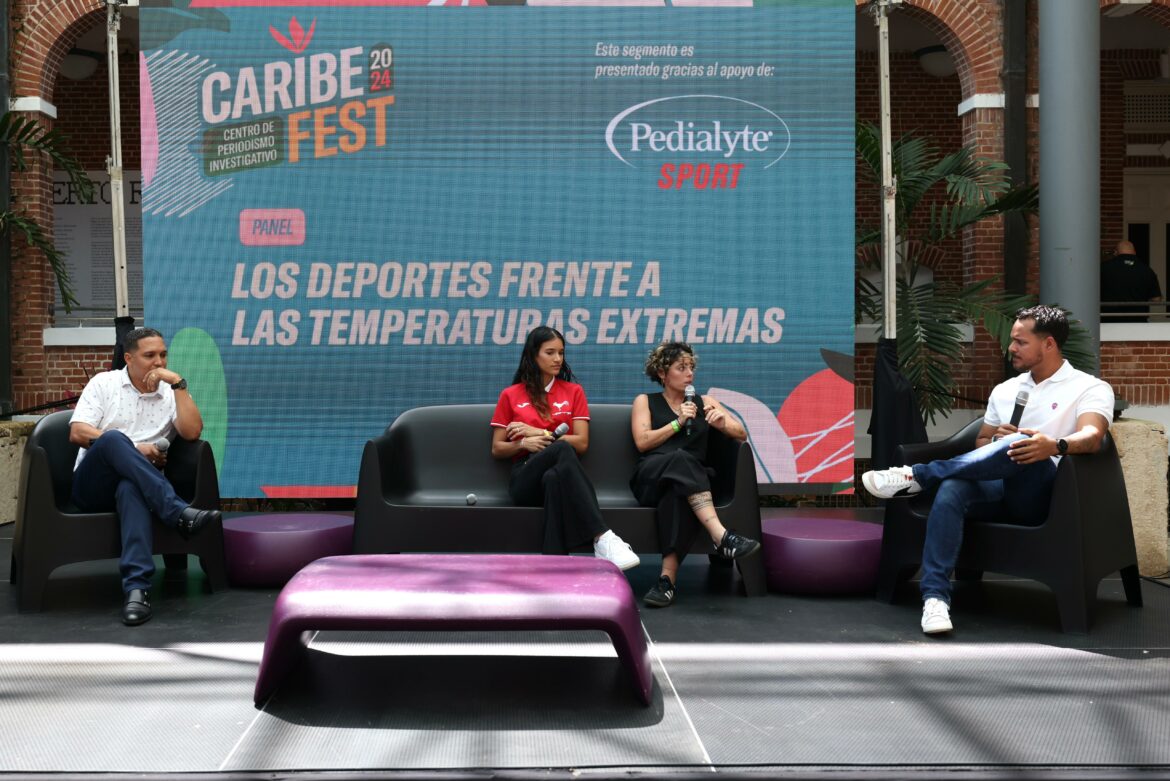Without air conditioners to cool them off at night, it’s tough for students to rest at the boarding school at the Albergue Olímpico, specialized in sports in Salinas, to restart their athletic activities the next day, which starts between 7 a.m. and 9:30 a.m. and begins again from 5 p.m. to 7 p.m., after attending classes.
These schedules are the result of several changes happening in the school campus since 2010 to improve the performance of student athletes due to the frequent episodes of humidity and heat that the school’s sports director, David Rosa Fonseca, said limit student performance.
“In the morning, there’s a high level of humidity that affects student performance. To this situation we must add the rest needed. The nights get hot, and students sleep in rooms without air conditioning in a town like Salinas [where high temperatures are recorded almost year-round],” said Rosa Fonseca.
“Those hours of rest, at night, are being monitored through smart watches that can tell us how deep that athlete’s sleep was. So, that coach can identify that that student, at that time of the morning, cannot participate in a high-intensity activity,” he added.

Photo by Brandon Cruz González | Center for Investigative Journalism
In 2023, temperatures of up to 115 degrees Fahrenheit were recorded in Puerto Rico, representing the most intense heat episodes on the island since 1899, according to an analysis by the Center for Investigative Journalism (CPI, in Spanish) using data from the National Weather Service.
For the 400-meter dash champion in the 2023 Inter-University Athletic League competitions, Deyanelis Rodríguez Morales, modifying her training routine has been key.
“In the afternoon, I delay training. During these breaks, I go to the shade, I drink things like Gatorade, to recover electrolytes, I have my water bottles with ice, and I’ve only taken an ice bath once,” said Rodríguez Morales, a student in her sixth year in the Department of Physical Education and Recreation at the University of Puerto Rico’s (UPR) Río Piedras Campus.
Given the heat and humidity in the metropolitan area, the champion, who is originally from Naranjito, in the mountainous central region, said it was an “extremely drastic” change to adapt to a new training routine.
“One of the challenges with the heat was getting around. I didn’t have a car, so I walked to the university and the training center in intense humidity and extremely high heat,” she added.

Photo by Brandon Cruz González | Center for Investigative Journalism
Professional soccer player Adriana “Tuti” Tirado Ortiz also modified her training significantly.
“I no longer only train at night, but also, and sometimes, in the morning, and I hydrate and eat a lot,” said the soccer player from the Puerto Rico Women’s Soccer Team. “Maybe before, when it wasn’t so hot, my workouts could take place in the later hours and not expose myself to the sun as much, but now everything counts.”
Tirado Ortiz also said that, depending on the sport, athletes must consider modifications that safeguard their health in the face of the climate crisis.
“Taking high temperatures into consideration is going to be essential. It isn’t just going, training, and leaving, but also taking in consideration the time at when you go out to train, how much hydration, number of supplements, and hours of rest you need,” she recommended. “If the sport you do is outdoors, think about all the other things, so that your development as an athlete is positive,” said the athlete who has participated in international soccer leagues in India.

Photo by Brandon Cruz González | Center for Investigative Journalism
The recommendations by Rosa Fonseca, Rodríguez Morales, and Tirado Ortiz were part of the panel “Sports in times of extreme temperatures,” moderated by journalist José Encarnación Martínez, at the Caribe Fest 2024 event, organized by the CPI at the Museum of Contemporary Art in Santurce.
Solutions are Slow to Come for Albergue Olímpico Athletes
The sports director of the boarding school specialized in sports of the Albergue Olímpico in Salinas said he spoke with Department of Education officials in June and July 2023 to inform them about the lack of air conditioners and to request the repair of the campus’s electrical system.
“The repair of the electrical substation has been estimated at $1.5 million, and it’s expected that the school will have a new station by 2026, and that each room will have air conditioning,” he said. “A system was created so that the school has running water when there’s no electricity. [Now] If there’s no power, there’s no water, and that’s why it’s urgent to address this,” he added.
Given the instability of the Puerto Rico Aqueducts and Sewer Authority’s (AAA, in Spanish) clean water distribution system, Rosa Fonseca said that “the Albergue Olímpico uses water from wells which can provide for hygiene purposes. We also distribute among the students boxes of bottled water.”




